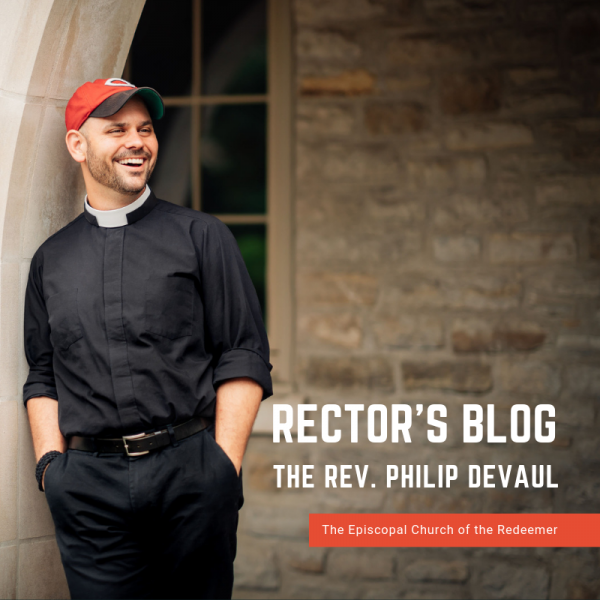Rector's Blog: Worship is a Movement

I remember when we were developing our vision statement and I was showing a working draft to various ministry heads and leaders at Redeemer. One of those people was Cynthia Williams. She read it with her characteristic attention to detail, taking care to notice every word and idea. Her first reaction was priceless: She said, “I like it, but it doesn’t mention worship.”
“Now wait a minute,” I thought, “worship is all over this thing: it’s got the word ‘communion’ in it for goodness’ sake!” Then I read it again. And then again. And again, and then I realized (this happens a lot when working with Cynthia) that she was so right. While we had developed a statement that was pretty powerful, and while those of us who worship at Redeemer would be able to experience the living into our Vision through that worship, the word itself was not ever explicitly stated. It was assumed, not ignored – but if you didn’t know our church, if you didn’t know what mattered to us, and we showed you that draft of the Vision Statement, it wouldn’t at all be obvious to you that worship is genuinely at the heart of how we understand ourselves.
So, we changed it.
We have a vision of a worshiping community that knows Jesus and grows in love.
Worship is a defining characteristic of our community. Worship is the primary way one develops connections, builds relationships, and begins to understand themselves as a part of the Redeemer crew.
And yet, a real understanding of worship eluded me for most of my life. That is to say, I could not have told you in simple words just what worship is if you had asked me. It was just a word we used to describe that thing we do on Sundays. Obviously, I knew all the pieces of a worship experience, but what did they add up to? I’m a priest now and I’m supposed to know the answer to these things. So, I did some digging.
Worship is the act of doing something intentional for God. You are in a relationship with God right now. That’s not optional, by the way, it’s just a thing that’s true. It might be a good relationship or a bad one, but it’s a relationship, nonetheless. And, in fact, Christians believe that relationship is one of mutuality and love. So, when you make a decision to lovingly tend to your end of that relationship, you’re living into that mutuality. We call that worship.
In our tradition we place a big emphasis on worshiping together: of gathering into a body of people, and we do this because we recognize that it’s not just my relationship with God, or your relationship with God: It’s our relationship with God. We’re all in this together, so we come together, and we pray, and read scriptures, and hear homilies, we stand together and profess our faith, and pray some more, and we share in the ritual of Holy Communion. Usually we sing. And the more we worship and share life with each other, the more we realize that we belong to each other, and that we belong to God.
Does this mean we can worship outside the walls of the church, or worship without a structured ritual that we call a liturgy? It does! The prophets of Israel often encourage and admonish their people to worship God not only in ritual but in the world around them: They describe the work of seeking justice, caring for those who suffer, and lovingly incorporating people who are on the margins of society as worship when it is done with an intention of doing so for God. The act of caring for others in God’s name, then, is worship. And voting can be an act of worshiping God, as can building a house with Habitat for Humanity or sharing a meal with someone who needs it. Listening can be worship, and maybe we need more of that kind of worship in our lives.
Worship, then, is dynamic. It’s not static. It’s not primarily about stating what we believe: Worship is the work of living into our beliefs. Worship is how our faith lives and moves and has its being in the real world. Worship is how faith breathes.
Worship is a movement: It’s a movement towards God. Wherever you are in your life, whatever your age, whatever the stage or status of your faith, you are connected to this movement. When you are gathered into this worshiping community, you are being swept up into a movement – drawn deeper into the heart of the God that made you.
We have a vision of a worshiping community that knows Jesus and grows in love. And this means we have a vision of being part of a movement. An active, intentional, love-filled movement towards God, towards one another, and towards God’s world. How do you experience that movement at Redeemer? Where do you see it out there in the world? How would you see your life differently if you understood every action as an opportunity to worship?